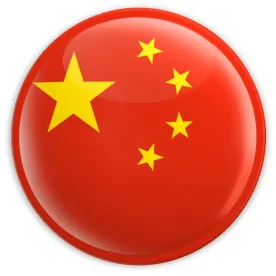Compliance
SAFE Adopts New Rules for Multinational Corporation’s Cross-Border Funds Management
外汇管理局发布跨国公司跨境资金管理新规
On March 15, 2019, the State Administration of Foreign Exchange (SAFE) issued the Circular of the State Administration of Foreign Exchange on Issuing the Administrative Provisions on the Centralized Operation of Cross-Border Funds of Multinational Companies (Hui Fa [2019] No.7) (the “SAFE Circular No.7”), which further liberalizes the central operation of cross-border funds by multinational corporations (MNCs).
Highlights of the SAFE Circular No.7:
-
Under the SAFE Circular No.7, MNCs may concentrate the quotas for foreign debts or overseas lending under the macro-prudential management system, and only need to make one-off registrations for the concentrated quotas, instead of registering each instance of borrowing or lending.
-
When making payments using capital accounts foreign exchange earnings out of the domestic master account, MNCs do not need to provide advance authentication materials to relevant banks on a case-by-case basis.
-
An MNC should make the centralized operation through its domestic master account, and the domestic master account may be a multi-currency (including RMB) account, without limits on the type of currency. There are also no limits on the number of accounts that can be established.
New Measures for Online Transactions Seeks Public Comments
网络交易新规向社会征求意见
On April 30, 2019, the State Administration for Market Regulation announced Measures for the Supervision and Administration of Online Transactions (Draft for Comments) (the “Draft Measures”) and sought public comment. The Draft Measures provide more detailed rules in implementing the E-Commerce Law with respect to online transactions and obligations owed by online transaction operators (including online platform operators and business owners operating on online platforms or self-built websites).
Highlights of the Draft Measures:
-
The Draft Measures provide more detailed guidance regarding the information disclosure requirements imposed on the online transaction operator, requiring it to disclose certain specific information of its business license, identity and contacts, close of business, and specifies the penalty for violation of laws and regulations.
-
Additional obligations are imposed on online transaction operators, including the obligations (a) to clearly mark the prices for goods or services provided by such operator; and (b) for the platform operators to review the completeness and authenticity of information provided by the business operators on its platform.
-
The Draft Measures further specify the rules relating to information collection and privacy during online transactions, including that (a) collection and use of information by operators shall (i) follow the principles of legality, justification, and necessity, (ii) disclose the purpose, method, scope, and rules for collection and use of information, and (iii) obtain customer consent; (b) consent to collect and use customers’ personal information shall be obtained each instance of collecting or using such information, and one-time authorization for information collection is not allowed; (c) online transaction operators may not refuse to sell goods or provide services if a customer refuses to provide personal information which is not related to the online transaction; (d) online transaction operators are obliged to keep the personal information and trade secrets received strictly confidential, take necessary measures to protect such information, and take remedial actions with respect to any loss or leakage of information once occurred.
State Council Promulgates Administrative Regulations on Human Genetic Resources
国务院颁布人类遗传资源管理条例
On May 28, 2019, the State Council promulgated Administrative Regulations of the People's Republic of China on Human Genetic Resources (the “HGR Regulations”), which repeal and replace the previous Interim Measures for Administration of Human Genetic Resources as the governing regulations regarding collection, preservation, utilization, and export of the materials and information related to human genetic resources in China.
Highlights of the HGR Regulations:
-
Although sale and purchase of human genetic resources are prohibited, supply or utilization of human resources for scientific research (even with reasonable payment to cover costs) are allowed.
-
For foreign organizations, individuals, or their established or controlled entities, collection, preservation, and export of China’s human genetic resources are not allowed, while utilization of China’s human genetic resources for scientific research may be allowed by way of cooperation with Chinese scientific research institutes, universities, medical institutions, or enterprises. Such scientific cooperation shall be approved by the Chinese governmental authority in advance, except for international cooperation on clinical trials for the purpose of obtaining marketing authorization, in which case the cooperation needs be filed with the governmental authority.
-
When carrying out international scientific cooperation utilizing China’s human genetic resources, the Chinese party shall be substantively involved in the whole course of study, and all records and data shall be accessible to and filed with the Chinese party; any patent arising therefrom shall be jointly owned and applied for by both parties.
-
Export of the materials of human genetic resources shall be approved by the governmental authority; while export of information of human genetic resources only need be filed with the governmental authority, it shall not jeopardize the public health, national security, or social interest, and the government may conduct a security review where there is a risk of such jeopardy.
Vaccine Administration Law Formally Enacted
疫苗管理法正式出台
On June 29, 2019, the Vaccine Administration Law of the People’s Republic of China (the “Vaccine Administration Law”) was enacted by the Standing Committee of the National People’s Congress, and will become effective Dec. 1, 2019. The Vaccine Administration Law strengthens the state administration of the development, manufacture, distribution, application, adverse reaction monitoring, safeguard, and supervision of vaccine products, and imposes stricter requirements on vaccines than general drug products.
Highlights of the Vaccine Administration Law:
-
A marketing authorization holder system has been established whereby the vaccine marketing authorization holder shall obtain both the drug registration certificate for the vaccine and the drug manufacture license. A vaccine marketing authorization holder must have manufacturing capacity, which shall be approved by competent medical product administrative authority at the provincial level. Commissioned manufacture of vaccine products by a third party may only be allowed if the marketing authorization holder has limited manufacturing capacity and such commissioned manufacture has been approved by governmental authority.
-
Each vaccine marketing authorization holder must establish a vaccine e-trace system, connecting with the state vaccine e-trace collaboration platform, so as to achieve the traceability and verifiability of vaccines at the minimum packaging unit level throughout the manufacture, distribution, and vaccination processes.
-
The Vaccine Administration Law imposes requirements on the marketing authorization holders to purchase the mandatory vaccine liability insurance to cover the liabilities incurred from quality issues of their vaccine products.
Newly Amended Drug Administration Law Passes
新修订药品管理法获通过
On Aug. 27, 2019, the Standing Committee of the National People’s Congress passed the newly amended Drug Administration Law of the People’s Republic of China (the “Drug Administration Law”), which will come into force Dec. 1, 2019. The Drug Administration Law introduces a nationwide marketing authorization holder system and further strengthens regulations over online drug sales and penalties for violative acts.
Highlights of the Drug Administration Law:
-
The Drug Administration Law expands the marketing authorization holder system from several pilot regions to the whole nation, replacing the previous good manufacturing practice certification system. Under the new drug marketing authorization holder system, the holder of the drug registration certificate is the drug marketing authorization holder and shall be responsible for the safety, effectiveness, and quality control of the drug throughout the entire process of development, manufacture, business operation, and use. Where the drug marketing authorization holder is an overseas enterprise, it shall designate a Chinese enterprise to fulfill its obligations and bear joint and several liability.
-
After receiving a clinical drug trial application, the drug administration authority shall within 60 working days decide whether to approve a clinical drug trial; if the authority does not notify the applicant of its decision within such 60-working-day period, the clinical drug trial shall be deemed approved. Clinical drug trial institutions only need to make record-filings with the government, which will further facilitate the clinical drug trial process.
-
The Drug Administration Law clearly prohibits online sales of drugs under special administrative measures (including vaccines, blood products, narcotics, psychotropic drugs, medically toxic drugs, radioactive drugs, and pharmaceutical precursor chemicals), but it leaves open the issue of whether sale of prescription drugs on the Internet is allowed, pending future clarification from the governmental authority.
Civil Procedure
Mainland and HKSAR Sign Arrangement on Reciprocal Recognition and Enforcements of Civil and Commercial Judgements
内地与香港签署互相认可和执行民商事案件判决安排
On Jan. 18, 2019, the Supreme People’s Court of the People’s Republic of China and the Department of Justice of Hong Kong Special Administrative Region (HKSAR) signed the Arrangement on Reciprocal Recognition and Enforcement of Judgments in Civil and Commercial Matters between the Courts of the Mainland and of the Hong Kong Special Administrative Region (the “REJ Arrangement”), seeking to establish a bilateral legal mechanism with greater clarity and certainty for judgment recognition and enforcement in civil and commercial matters between the two places.
The REJ Arrangement applies to matters considered to be of “civil and commercial” nature under both Mainland and Hong Kong laws, and covers both monetary and non-monetary relief. Non-judicial proceedings and judicial proceedings relating to administrative or regulatory matters are excluded. By establishing a more comprehensive mechanism for judgment recognition and enforcement in civil and commercial matters, the REJ Arrangement will reduce the need for re-litigation of the same disputes in both places and offer better protection of the parties’ interests. The commencement date of the REJ Arrangement will be decided after promulgation of a judicial interpretation by the Supreme People’s Court and completion of relevant procedures in the HKSAR.
Mainland and HKSAR Sign Arrangement on Interim Measures in Aid of Arbitral Proceedings
内地与香港签署仲裁程序相互协助保全安排
On April 2, 2019, the Supreme People’s Court of the People’s Republic of China and the Department of Justice of Hong Kong Special Administrative Region signed the Arrangement Concerning Mutual Assistance in Court-Ordered Interim Measures in Aid of Arbitral Proceedings by the Courts of the Mainland and of the Hong Kong Special Administrative Region (the “Interim Measures Arrangement”).
Per the Interim Measures Arrangement, parties to arbitral proceedings in Hong Kong, before the arbitral award is made, can make an application for interim measures to the courts in the Mainland, including property preservation, evidence preservation, and conduct preservation, and parties to arbitral proceedings in the Mainland may also apply to the High Court of Hong Kong for injunction and other interim measures for similar purposes of maintaining the status quo, preventing acts causing prejudice to the arbitral proceeding, or preserving evidence. It aims to prevent one of the parties to arbitral proceedings from deliberately destroying evidence or transferring property, and to ensure arbitral proceedings can be carried out effectively. The commencement date of the Interim Measures Arrangement will be decided after promulgation of a judicial interpretation by the Supreme People's Court and completion of relevant procedures in the HKSAR.




 />i
/>i
